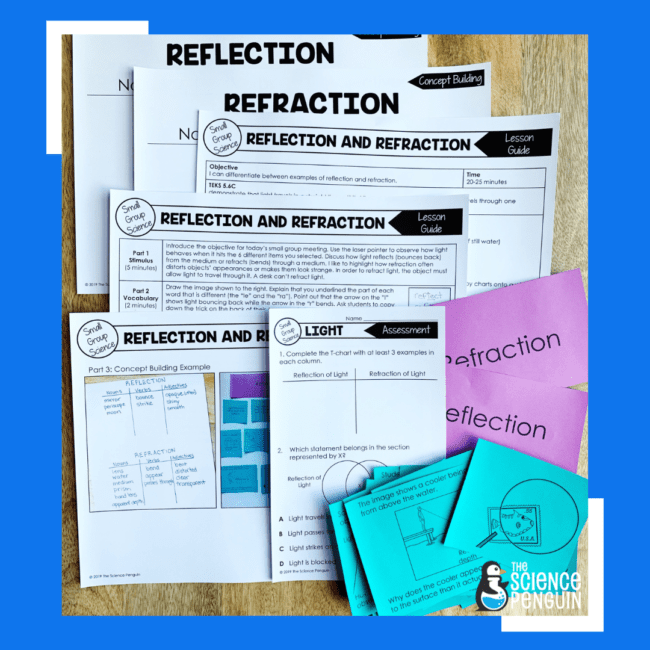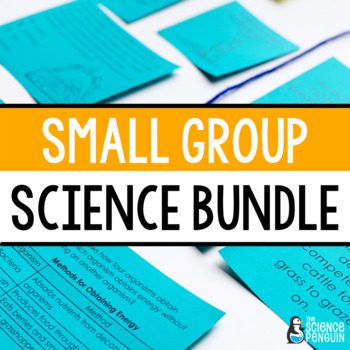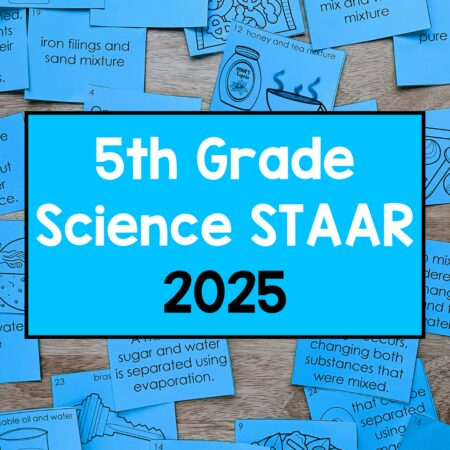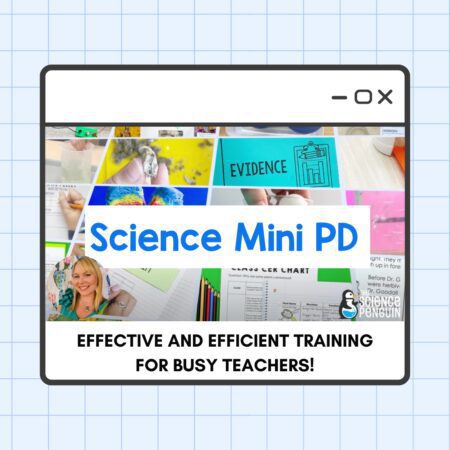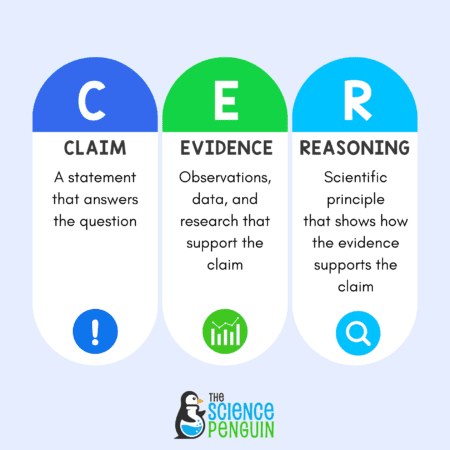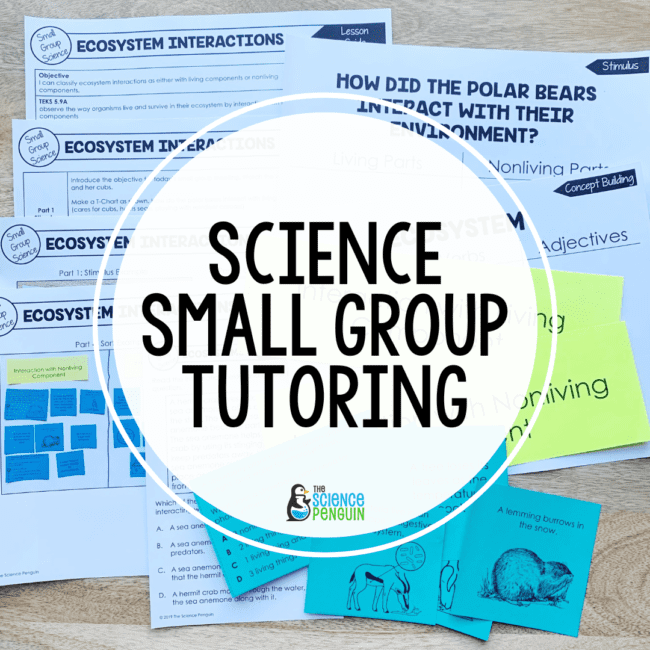
As a 3rd grade self-contained teacher, I learned how much small group instruction was necessary for my reading and math students, especially with state assessments lurking around the corner.
Unfortunately, I often had to create or purchase things that may not necessarily give a step-by-step action plan to utilize the resource.
When I moved to 5th grade and went from a self-contained to a departmentalized teacher in science, I knew that small group was essential to reach students who needed additional support. The Science Penguin was there to save the day with tools that required minimal prep, gave tips and tricks, guided me with step-by-step instructions, and included assessments at the end of lessons to see if students mastered the content.
When I Meet With Small Groups
Intervention & Enrichment:
Our campus had a dedicated time in each grade level where students participated in programs such as G/T, Dyslexia, and Speech. During this time, my team would collaborate and develop small groups to work with the remaining students in our classes. We formed groups based on the data we collected with student mastery of specific standards.
I had a group I would instruct for at most 20-25 minutes. I usually met with two groups each day with this method. The other students in my class would work on enrichment choice board activities, catch up with missing work, or be with another teacher for intervention in another subject.
Tutoring:
I was fortunate enough to have a tutor twice a week. Students I may not have met with during Intervention & Enrichment time would see our grade-level tutor, and I would give them the necessary resources to implement. We collaborated on what I would like them to focus on, and it was great getting the data back of success or things I needed to reinforce.
Station Rotations:
Another option I used when my tutor wasn’t there was to have part of my class period work through station rotations that they could do while I could also pull the remaining students who needed additional guidance.
For me, I loved having the science stations that The Science Penguin created so I could make sure my other students who were on the path of mastery were still getting engaging content taught in a self-paced manner.
Remember, it will take time to establish these methods of small-group instruction, but your students will benefit immensely in the long run.
This is a guest post from Evan Sanchez, Educator Support Manager for The Science Penguin.

